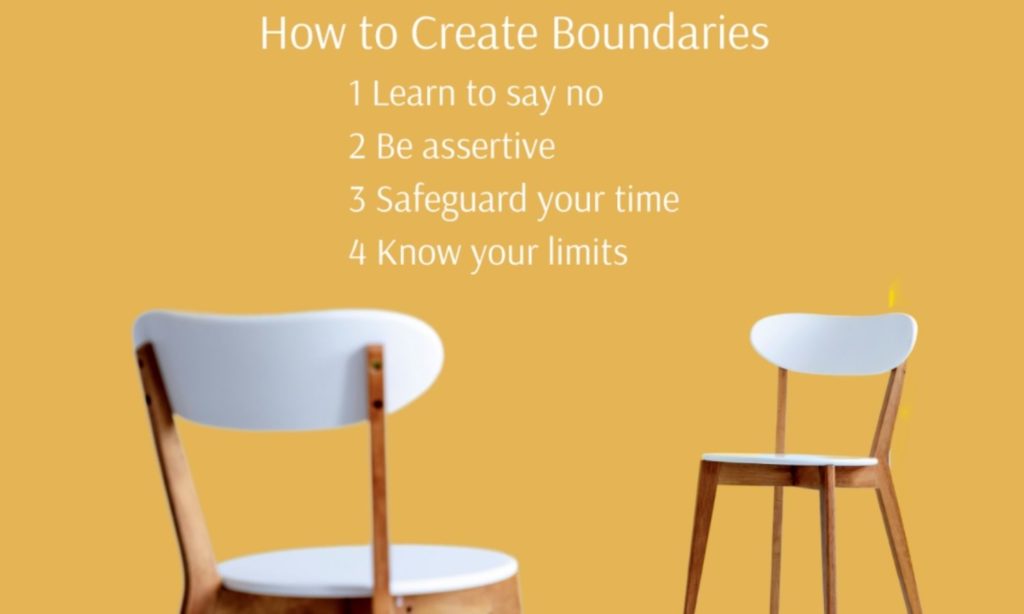
Increase Revenue. Find new leads.
Eat healthier. Workout more.
Drink less alcohol.
Does this sound familiar?
These types of resolutions account for approximately half of the resolutions business owners make each year. And with good reason, too. Study after study shows that a low-stress lifestyle, healthy diet, regular exercise, and limiting alcohol consumption is tied to greater longevity.
However, these are resolutions that will often fall to the wayside because, well, the life of an entrepreneur gets busy and you get rushed. Pretty soon that new year resolution is a distant memory.
So this year I’m challenging you to adopt one (or more) of the five resolutions below. Chances are, if you can stick to one or more of these, then you’ll have an easier time achieving your business goals, eating healthy, exercising, and you won’t even need that all too often nightcap!
Sounds too good to be true? Think again.
Many times, poor food choices, lack of motivation to exercise, and overconsumption of alcohol boils down to the same root cause. Too much stress! And prolonged stress is known to have an effect on both physical and mental health.
So what can you do about it?
First, you must acknowledge and commit to the fact that you have the power to take back control over your life. When you master your mindset and reduce your stress, you will be unstoppable.
In working with clients, I see that everyone’s stressors are different and highly personal. What works for one person, may not work for another. And that’s ok.
But if you’re tired of feeling stressed, lack motivation, and are generally unsatisfied with one or more areas of your business or life, then try these five evidence-based tips for creating an even better you in 2024!
The Secret Sauce for 2024
Implement these 5 tips and you will be well on your way to increased goal attainment, improved energy, optimism, and living a life of gumption this year!
#1 Have a Daily Gratitude Practice
In addition to all the “feel good” aspects of practicing gratitude, there are a TON of scientifically-validated benefits of gratitude.

Leading researchers like Robert Emmons and Martin Seligman have taught extensively on why the virtue of gratitude is more than just saying, “thank you.”
Let’s dive into what the research tells us.
It has been determined that gratitude does four things, and these four things allow someone to reap the many benefits of practicing gratitude.
- Gratitude disconnects us from toxic thoughts and emotions. It shifts our focus to more positive emotions.
- Expressing gratitude increases happiness and satisfaction, even if we don’t share our gratitude with someone.
- The positive effects of a gratitude practice compounds over time. In the first days or weeks of beginning a gratitude practice, you might not notice much. But over time, the positive benefits and emotions build and you have an “AHA” moment.
- Having a gratitude practice trains the brain to acknowledge and build on positive thinking.
There are many ways to incorporate gratitude in your day-to-day life. Some ideas include journaling, using a gratitude app, making it a weekly practice on your social media page of choice, or simply discussing what you’re grateful for over dinner with friends and family.
Those who practice gratitude regularly increase their happiness and decrease inflammation in the body. Also, expressing gratitude reduces stress, increases optimism, and literally changes your brain! Other benefits include more satisfaction with life, better sleep, less fatigue, and greater resiliency. Who doesn’t want that?!
#2 Meditate
Meditation is the act of thinking deeply, or focusing one’s mind, as a method of relaxation.
A regular meditation practice is an important tool in your daily routine toolbox. It is especially beneficial to meditate during periods of distress. Here’s why.
Meditation has been scientifically proven to decrease stress, improve mental clarity, and boost energy. Studies have also shown that individuals who meditate daily see improved cellular health, balance their hormones, and reduce blood pressure.
I often hear from clients, “I’m too busy to meditate,” and “I want to, but I don’t know how.”

Beginning a meditation practice can be intimidating, but taking the following steps will ensure you focus on your goal(s), take small action steps, and commit to improving your well-being one meditation session at a time.
- Set Your Intention – Why are you meditating, and what do you hope to accomplish? How do you want to feel during and after a session?
- Start Small and Make Lasting Change – Everything is always easier when you start small and take baby steps. Begin with a few minutes a day, maybe five minutes to begin with. Then work your way up to 20-30 minutes or whatever works best for you.
- Pick Your Style – Do you prefer guided meditation? Or do you see yourself being quiet, still, and repeating a mantra in your head? Don’t compare yourself to what others do or say when it comes to meditating. Find what style works best for you and you’re more likely to build consistency.
- Make the Commitment – Establish a routine and be consistent! Believe it or not, 5 minutes every day reaps more benefits than an hour once a week.
When implementing a meditation practice, aim to schedule a session during your morning, evening, or bedtime routine. Incorporating meditation should be enjoyable, and never feel like one more thing on your never ending to do list.
#3 Prioritize Sleep
Is there anything more glorious than a good night’s sleep?! The kind where you wake up feeling refreshed and ready to own your day. Then why do so many adults skimp on sleep?
Sadly, 35.2% of adults sleep less than seven hours per night and nearly half of all Americans report feeling sleepy during the day between three and seven days per week. [1]
I’m too busy to sleep…
I have too many obligations and responsibilities, so I stay up late to unwind and binge watch my favorite series…
I’m always on the go and don’t have the luxury of getting more than 5 or 6 hours of sleep…
I’ll sleep when I’m dead.
Sound familiar?
In a world where lack of sleep is worn like a badge of honor, be the person who says, “HELL NO!”

even to nine hours of quality sleep is associated with numerous health benefits, and it is quite literally the time your body does some of its most important work.
During sleep, your body is in rest and recovery mode. When sleeping, your organs have time to rest, tissue is repaired, muscles grow, and protein synthesis occurs.
Also, sleep is crucial for having happy hormones. During sleep the hormones which regulate appetite, stress, growth, metabolism, and other important bodily functions are released.
Lastly, memory consolidation occurs while you’re sleeping. Sleep is what allows the brain to form and store new memories, and this is essential for learning new information. Concerned with mental clarity? Prioritize sleep!
Other health benefits associated with sleep include a stronger immune system, improved alertness, focus, and clarity, a more positive mood, reduced anxiety and depression, and increased energy.
In addition to sleeping the recommended seven to nine hours a night, establish a strong bedtime routine. A solid bedtime routine will increase the likelihood you will have quality and restorative sleep.
Try some of these tips…
- Create a Peaceful Bedroom – A calming paint color, aromatherapy, a comfortable mattress and pillow, declutter, remove or limit electronics, and keeping lights dim before bed will help create an environment conducive to sleep.
- Limit Caffeine/Liquids Before Bed – Having caffeine in the afternoon and evening can make it hard to fall asleep and/or stay asleep. Also, consuming too much liquid before bed might have you running to the bathroom during the night. Interrupted sleep prevents the body from reaping the advantages listed above.
- Enjoy Your Last Meal 2-3 Hours Before Bed – Digesting requires energy, and that interferes with your body’s ability to rest. (Check out my post on fasting and its relationship to sleep here.)
- Engage in a Relaxing Activity – Whether it’s reading, journaling, stretching, a warm bath, or talking with a loved one, engaging in activities that decrease over-arousal is linked to falling asleep with greater ease, as well as a sound night’s sleep.
- Avoid Blue Lights and TV 2-3 Hours Before Bed – Using a blue light device or watching tv before bed interrupts your body’s natural circadian rhythm. The light from your device or tv boosts attention and makes you more alert. And while light of any kind suppresses the secretion of melatonin, (The hormone that your brain produces in response to darkness. It helps with the timing of your sleep/wake cycles.) blue light is especially powerful at suppressing melatonin.
When you establish a strong bedtime routine, and aim for 7-9 hours of sleep every night, you’ll boost your mindset, mood, and energy levels!
#4 Set Healthy Boundaries

ip number 4 is probably the hardest to implement, yet it yields great benefits for your mental health, which in turn affects your overall well-being.
We’re talking about boundaries.
So what are boundaries? And how can you establish your own healthy boundaries?
Boundaries are the rules, limits, or guidelines you set to let others know what you are comfortable with and what you are not comfortable with.
There are different types of boundaries, but for now we’ll stick to personal boundaries.
A personal boundary is a guideline and/or rule you set for yourself to ensure you are being aware of your needs, and being aware of how you can respect and meet those needs in a healthy way. They’re the limits you set for yourself within a relationship.
Establishing healthy boundaries is an important life skill that comes more easily to some than to others.
If you’re someone that struggles to establish boundaries, consider the benefits of learning to do so…
Healthy boundaries are associated with improved self-confidence and a healthy self-concept, better communication with others, more fulfilling relationships, and greater stability and control over our lives. [2]

To set healthy boundaries for yourself, try these four things.
- Learn to Say No – Easier said than done, I know. But this is an important skill to master if you want to have healthy boundaries with people. No is a complete sentence, and you do not need to offer an excuse or reason for saying no. A co-worker asks you to cover their shift? No. Someone asks you to dance? No. You do not need to explain yourself when asked to do something you aren’t comfortable doing.
- Be Assertive – It’s not what you say, it’s how you say it. When you speak in an assertive manner, your thoughts or opinions are clear to the listener, and they understand what you’re saying is not up for negotiation. When done correctly, it isn’t threatening either. Use “I statements” to show confidence and communicate boundaries by clearly expressing your thoughts, feelings, and opinions. For example, instead of saying, “Keep your hands off my stuff,” you could say, “I feel violated when you touch my things. What I need is to know my things and space are respected.”
- Safeguard Your Time– Take steps to protect your schedule and the times you make yourself available, which might mean taking a time out from tech. One study reported that the mere expectation that you should be available to answer work emails during nonwork time frames can decrease your well-being and create conflict in your relationships. [3] So set boundaries for work-life balance whenever you can. Set a cut-off time for answering texts and emails from colleagues, as well as friends and family.
- Know Your Limits – To know your limits, you must examine your past. Become aware of past situations in which you felt uncomfortable, frustrated, angry, or resentful. Times when limits may have been crossed. Make a simple list of examples of the things that make you uncomfortable, and vice versa. What things make you feel safe and comfortable. Get clear on what your intellectual and emotional boundaries are with strangers, work colleagues, friends, family, and partners.
Know your own worth, and remember that no one has the right to make you feel uncomfortable or overstep your boundaries.
#5 Make Time for Fun
Honestly, this is the “F word” that most people don’t use enough.
In this fast-paced, competitive, and always connected world we live in, FUN is often the first thing people give up or forget to make time for on their calendar.
But why?! Isn’t fun just as important as everything else in our life?
YES, yes it is!

Start small by building in one fun activity a week. Build up from there so that you get to a point where you do something fun EVERY. DAMN. DAY!
Here are some ideas to get you started.
✔ Go for a bike ride
✔ Take in a movie
✔ Meet a friend for coffee
✔ Go for a hike
✔ See what your town has to offer in the coming month and commit to going
Having fun helps you relax, which means you’re relieving stress. A fun activity gives more energy than it takes AND it gets those endorphins going. Endorphins promote an overall sense of well-being.
Enjoying fun activities on a regular basis has a tremendous effect on your mood, and that has a domino effect on your overall health!
Fun doesn’t have to cost a lot of money, and the benefit of incorporating it into your daily and/or weekly calendar is priceless!
Bonus Tip!
If you want to experience a mindset shift and reduce your stress, master this three-step process when you are looking to make changes in your life: Evaluate – Plan – Take Action.
It really is that simple. Don’t overcomplicate things.
When you do the hard work and commit to taking small steps to change your mindset, you create sustainable behaviors. Behaviors that will serve you and lead you to living a life of GUMPTION. You will be free to live your life with courage, boldness, and audacity.
Get the support you need to implement these tips, and so much more, when you join Founder Fast Track.
Being a part of Founder Fast Track means you’re less likely to procrastinate, you’ll have built-in accountability, and a cohesive business growth strategy.
It’s time for you to get on track and stay on track!
Enroll now! Click here.
~ Kim
- Eric Suni & Kimberly Truong, “Sleep Statistics,” Sleep Foundation, February 8, 2021, accessed October 18, 2021, https://www.sleepfoundation.org/how-sleep-works/sleep-facts-statistics
- Mariana Bockarova Ph.D., “4 Ways to Set and Keep Your Boundaries,” Psychology Today, August 1, 2016, accessed October 14, 2021, https://www.psychologytoday.com/us/blog/romantically-attached/201608/4-ways-set-and-keep-your-personal-boundaries
- William J. Becker, Liuba Belkin and Sarah Tuskey, “Killing me softly: Electronic communications monitoring and employee and spouse well-being,” Academy of Management, July 9, 2018, accessed October 18, 2021, https://journals.aom.org/doi/10.5465/AMBPP.2018.121
After I originally left a comment I seem to have clicked the -Notify me when new comments are added- checkbox and now every time a comment is added I recieve four emails with the exact same comment. Is there a way you can remove me from that service? Many thanks!